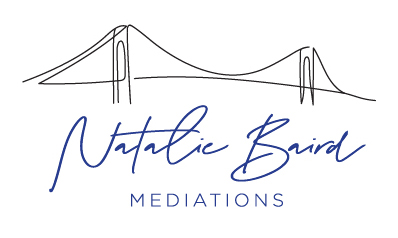With all of the recent events concerning the COVID-19 pandemic and subsequent shutdowns and social distancing mandates, (including local in-state face mask laws) you might be wondering how exactly your divorce and divorce mediation in Tampa will move forward. For the near future, social, legal, and business encounters are going to be dramatically affected. Courthouses have postponed mediation and diversion services until further notice. This however does not affect YOUR divorce mediation, and your divorce planning does not need to be delayed. You can participate in a private and secure Virtual Divorce Mediation online.
What is an online ‘virtual’ divorce mediation?
Instead of going to an office, sitting in a room, and talking in front of your divorce mediator and spouse, you can meet and talk via video conference. We use software such as zoom, Facebook messenger, DocuSign, and Skype to accomplish the entire divorce mediation online.
Your online virtual divorce mediation uses the latest internet technology and is safe and completely secure. Using your cell phone, tablet, laptop, or webcam on your computer, you will connect to a virtual meeting room where you, your mediator, and your spouse can speak in real-time. You and your spouse will discuss the terms of your divorce in a private setting that can be much less imposing than meeting face-to-face. Because you can access the internet from anywhere, you don’t have to live in Tampa or Clearwater. You can attend a mediation from Pensacola or Miami, and your spouse could be in Orlando or Tallahassee. This technology offers extraordinary ease and flexibility for everyone concerned.
How to choose your divorce mediator in the Tampa Bay area and elsewhere
Divorce mediation is a very important aspect of your divorce. This is the only time you and your spouse are going to be discussing the terms of your divorce, and the course forward. You need to make sure that you have an experienced divorce mediator, one that is knowledgeable in all aspects of legal Family Planning. Natalie Baird has been a Board Certified attorney since 2011 and is a supreme court certified family law mediator.
Natalie Baird of Tampa can assist you with your divorce mediation, regardless of wherever you and your spouse live. Thanks to online mediation tools, and her devotion to being an impartial party, you can be assured that you and your spouse will have a safe and respectful mediation time. If you are from anywhere in the State of Florida, and you need a trusted, well-versed Family Law mediator, please fill out the form to the left or give us a call at 813-440-9975.
Who Controls the Process
Collaborative:
You and your spouse control the process and make final decision
Litigation:
Judge controls process and makes final decisions
Degree of Adversity
Collaborative:
You and your spouse pledge mutual respect and openness.
Litigation:
Court process is based on an adversarial system
Cost
Collaborative:
Costs are manageable, usually less expensive than litigation; team model is financially efficient in use of expert
Litigation:
Costs are unpredictable and can escalate rapidly including frequency of post-judgement litigation
Timetable
Collaborative:
You and your spouse create the timetable
Litigation:
Judge sets the timetable: often delays given crowded court calendar
Use of Outside Experts
Collaborative:
Jointly retained specialists provide information and guidance helping you and your spouse develop informed, mutually beneficial solution
Litigation:
Separate experts are hired to support the litigants’ positions, often at a great expense to each
Involvement of Lawyers
Collaborative:
Your lawyers work toward a mutually created settlement
Litigation:
Lawyers fight to win, but someone will lose
Privacy
Collaborative:
The process and discussion or negotiation details are kept private
Litigation:
Dispute becomes a matter of public record and sometimes media attention
Facilitation of Communication
Collaborative:
Team of collaborative practice specialists educate and assist you and your spouse on how to effectively communicate with each other
Litigation:
No process designed to facilitate communication
Voluntary vs. Mandatory
Collaborative:
Voluntary
Litigation:
Mandatory if no agreement
Lines of Communication
Collaborative:
You and your spouse communicate directly with the assistance of members of your team
Litigation:
You and your spouse negotiate through your lawyers
Court involvement
Collaborative:
Outside court
Litigation:
Court-based
